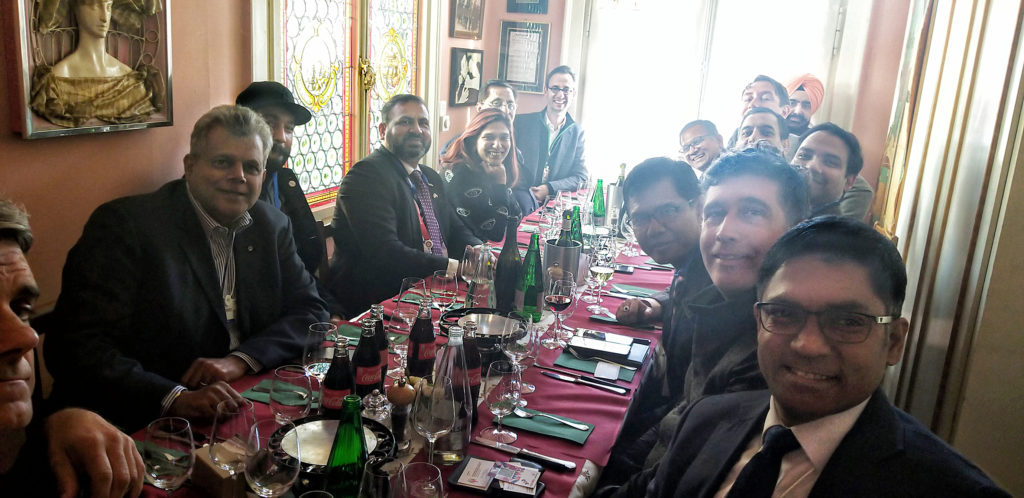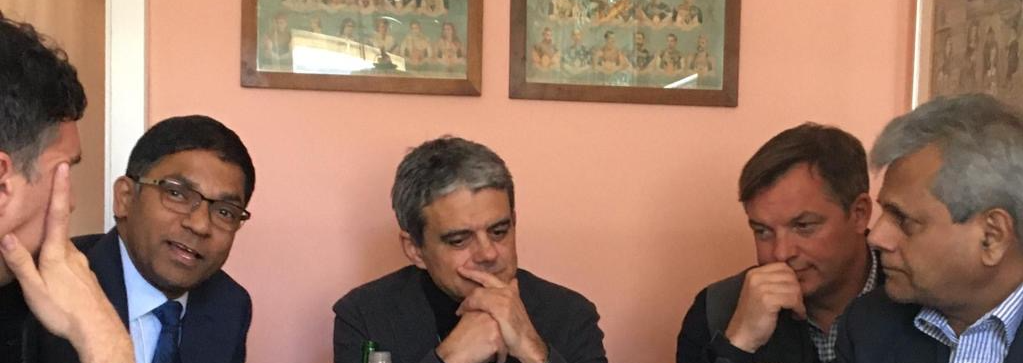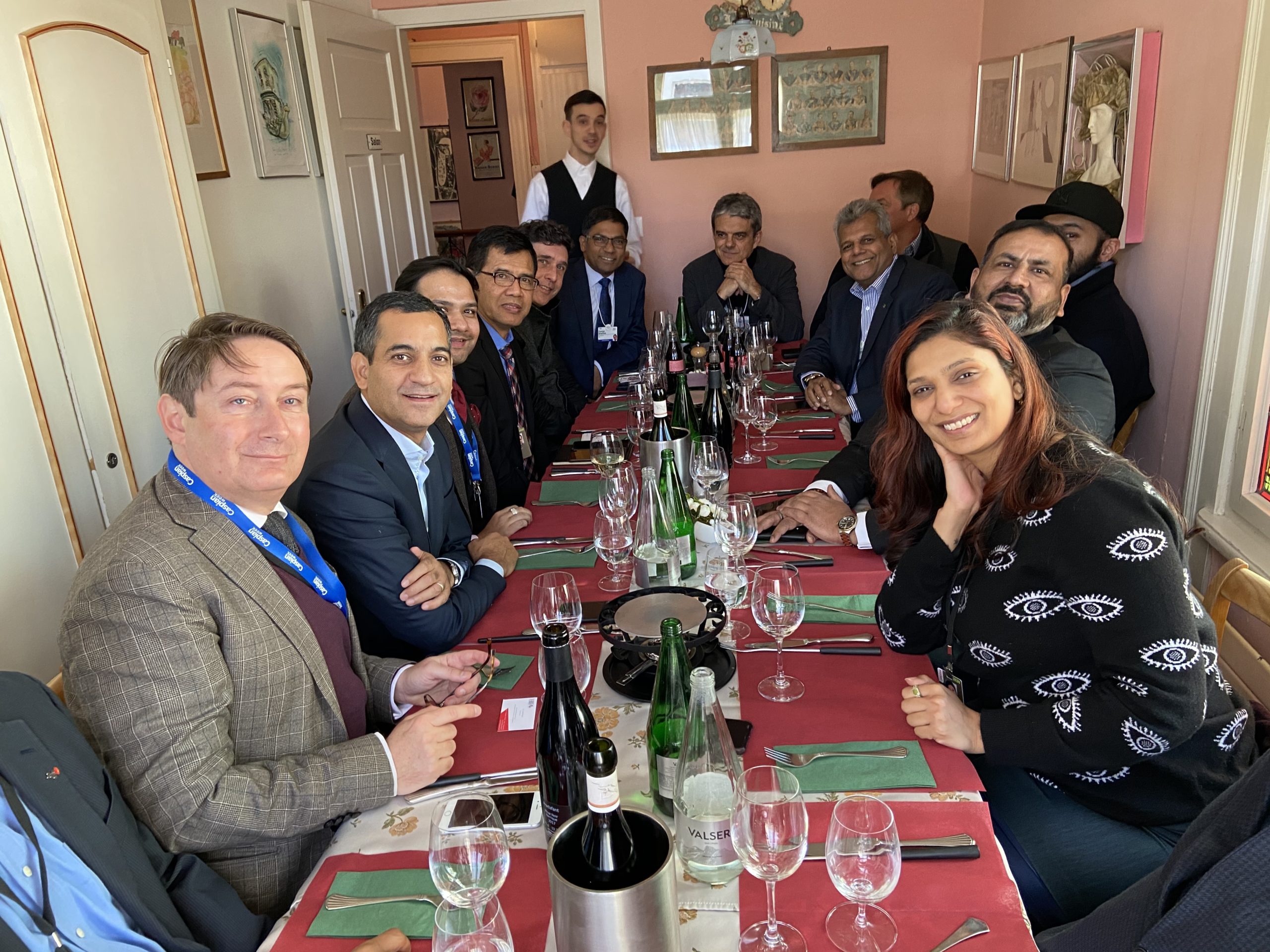The Bridge Tank organized on the sidelines of the World Economic Forum in Davos an international workshop on the theme: “Accelerating the smart city – financing solutions and project governance for emerging markets. “
The bridge tank organised an industry conversation on « accelerating the smart city – financing solutions & project governance for emerging markets », convened by Joel Ruet & our Board Member Pranjal Sharma. The event was the opportunity to exchange on how to Kick-start the Smart cities: How to go from ideas to projects, from projects to returns, from returns to smart cities that work. How can entrepreneurs, companies, investors gear into initiatives that are left free to succeed by the city authorities, for smart cities to no longer mean blueprints but develop and operate as a true industry?

Our starting point was that « smart cities » have been on the air for long ; had they picked the magnitude we talked them about, we’d see them everywhere by now. We discussed the evolving funding criteria for smart cities; their ever evolving challenges and meeting them for smart cities funding.
First of all, contributors reminded the definition issue, ranging from mere energy, food or water conservation to smart and widespread use of data, through new cities, real estate with an ecosystem community including schools for talents, etc.
The second issue was on governance: how to decide, how to fund them? Which strategies between new cities and modifying existing ones? And how not to forget the smart villages? The Indian rural experience was discussed, on strategies to move from thermal diesel to solar, generalise wifis and digital bank accounts, digital crop data management for fertilizers.
Some participants from emerging countries were on the position that smartness should be tested in villages and then extended to smart cities; the example of Punjab was mentioned, which started from the district level, then with 3 smart cities in Punjab. IFC’s experience in digitalisation in “Invest in Africa” program was also mentioned as a successful pilot. However, cheap internet through mobile systems isn’t per se making a smart city. The issue of space was mentioned: smartness is not just about digitalization but requires space: in already congested cities this raises serious concerns.
The issue of public governance and private profitability were mentioned, but we dedicated a large space of our conversation to the issue of enabling citizens: as they become smart, so does the city they live in. “Innovation clusters”, with the Ukrainian example this time, were mentioned in such a spirit of rather looking at what brings people together, not necessarily having to involve the government.
Last, economic practice were mentioned: not just about introducing technology but also co-living, sharing economy, etc., and, at the end, a more segmented approach for circular economy, between premium / mass segments.


